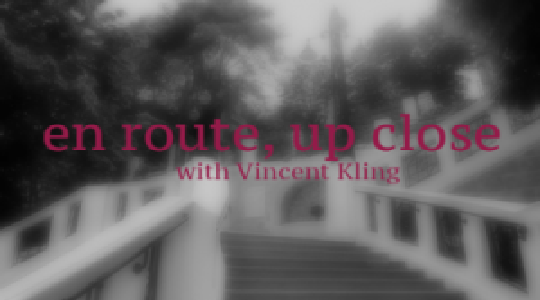This week we bring you the sixth installment of Translator’s Diary, a column by Vincent Kling, winner of the 2013
Same Thomism, Different Place: Last month I wrote from Ghent, New York, where ten translators had gathered for a week of all-day workshop sessions. Warm thanks to Shelley Frisch and Karen Nölle for their expert guidance. Now I’m in Straelen, Germany until late June, at the European Translators’ Colloquium, meeting colleagues from all over (Turkey, Japan, Italy, Albania, Canada, and more) and free to concentrate on Strudlhofstiege. That’s just as well, because I’m at a very difficult place, working even more slowly than usual. My colleagues keep saying, “Es wird schon”—“It’ll turn out fine,” but it doesn’t feel that way.
And while I want to get back to specifics of Doderer’s novel, I’m finding more to say about Thomism, since I’m starting to consider the influence of Aquinas more and more central to my understanding of what happens in Strudlhofstiege—what happens and how it happens.
The Word Made Flesh: To a Thomistic-minded creative writer, every use of words is an incarnation (capital ‘I’ included), an exercise in logos. All creation came about through God’s words: “‘Let there be light’: and there was light” (Genesis 1:3-5). No gap, no sequence, no first and second steps. Logos makes the word and the deed, the name of the thing and the thing itself, indissolubly identical. From the moment God gave Adam the power of naming the animals, a shadow of logos (Genesis 2:19-20); in the rapture empowering Coleridge’s Kubla Khan simply to “decree” a pleasure dome and make it rise; in the all-encompassing mythic vision of the America Hart Crane created in The Bridge; in the hermetic compression of Paul Celan’s late verse—threatening to enter a black hole of linguistic density—the dream of all writers has been to make the utterance the actuality, to make the word flesh. (The opening of John’s gospel is a kind of refresher course.)

